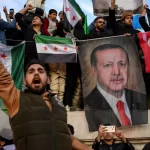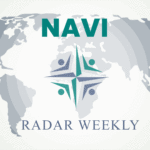Subscribe to NAVI Radar Weekly
hereFocus Point: Regional Security- Middle East
Geopolitics and Geography: A Realigned EU Strategy for Stability in the Middle East and Eastern Mediterranean | EGMONT
By Bernard Siman |28.10. 2024
The new EU Commission should commence its geopolitical thinking by acknowledging that geography is not kind to those who ignore her. The new European Parliament has the unique opportunity to become perhaps the first geopolitical parliament through a similar process. States, political leaders and societies ignore their geographic realities at their peril.
Perceptions of location, distance and neighbourhoods can be dangerously distorted when they drift too far off from actual geographic realities.
Digital technology, ease of air travel (bypassing the unpleasant geographic realities on the ground), combined with over three decades of peace in Europe, and 50 years in the Middle East, have created the distorted perceptions that somehow Israel’s and Ukraine’s neighbourhood was liberal Europe.
These collective perceptions, untethered from their geographic realities, eclipsed perhaps the fact that both have neighbours with whom they have been at differing degrees of long-simmering conflicts. In reality, however, Israel and its neighbours have not succeeded at resolving the conflicts on its very borders, betraying the perception of peace. It is as if those neighbours with whom Israel has been in conflict had disappeared.
Read more…
Focus Point: Security and Defense Policy- Defense Discussions
Norms, Politicization, and The Military Profession | USAWC
By Risa Brooks , Carrie Lee | 29.10.2024
There is a global trend of increased politicization of the military in eroding democracies, some of which are allies of the United States. Risa Brooks joins host Carrie Lee to shed light on the evolving dynamics between political leaders and the military.
The trend of political leaders using the military for their own gain.
Brooks discusses the trend of political leaders using the military for their own gain. She emphasizes the importance of military elites resisting this politicization to uphold democratic principles and prevent the military’s use for partisan purposes. The discussion also underscores the crucial role of professional military education in instilling a deep understanding of democratic norms and ethical boundaries in military service. The episode aims to raise awareness about this critical issue and encourage military professionals to uphold their commitment to democratic values.
Read more…
Focus Point: Regional Security- Transatlantic Security/NATO
Meeting Between NATO Secretary General Mark Rutte and President of the European Commission Ursula von der Leyen | NATO
By NATO| 29.10.2024
Today Secretary General Rutte met with President von der Leyen for the first time since Mr Rutte took office at the helm of NATO.
Their discussion focused on the importance of a close and strategic partnership between NATO and the European Union. Both agreed that in an increasingly dangerous world, this partnership is vital in order to champion and safeguard peace, freedom and prosperity.
Russia’s war of aggression on European soil is the single biggest threat to peace and security on the European continent.
Secretary General Rutte and President von der Leyen both emphasised that the deployment of North Korean soldiers in support of Russia’s war of aggression represented a significant escalation of the war against Ukraine as well as a serious threat to European security and global peace.
They also discussed the growing assertiveness of authoritarian states on the world’s stage. These states challenge our common interests, values and democratic principles, using multiple means – political, economic, technological and military.
To address these evolving threats and challenges, Secretary General Rutte and President von der Leyen have agreed today to set up a new
high-level task force to strengthen the existing NATO-EU cooperation. Planning for the first meeting of the task force is expected to move forward in the coming weeks.
Read more…
Focus Point: Regional Security- Transatlantic Security/NATO
Invictus Games Demonstrate The Unconquerable Soul of Veterans | NATO
By NATO | 30.10.2024
On 30 October 2024, the Invictus Games Foundation briefed the NATO Military Committee at NATO Headquarters on the role of Invictus in supporting wounded, injured and sick service members and veterans.
The delegation briefed the Military Committee on the breadth and development of the Invictus programme and the progress it is making to expand the scope of its mission.
The core purpose of Invictus is to support the recovery and rehabilitation of Wounded, Injured and Sick (WIS) Service Members through sport and adventure.
The Invictus Games Foundation is working to continue establishing a global community where rehabilitation and recovery are better enabled and understood. This is primarily through the delivery of the Invictus Games, taking place in different host cities every two years around the globe, but also through a multi-layered programme beyond the games, which aims to build a network amongst global Wounded, Injured and Sick veterans and promote advocacy of Invictus.
Read more…
Focus Point: Security and Defense Policy- Russia-Ukraine War
Putin’s Generals are Turning on Each Other| Newsweek
By Brendan Cole I 31.10.2024 | Subscription needed
A Russian general has been arrested on suspicion of corruption after his former superior informed on him.
The detention of Major General Alexander Ogloblin, the former head of Russia’s military communications department, is the latest arrest of a high-ranking Russian military figure, amid speculation of a clampdown on Vladimir Putin’s top brass.
The British Ministry of Defense (MOD) said Wednesday that Ogloblin’s second arrest signaled a clampdown by Russia’s authorities against serving and former defense officials who had been appointed by Shoigu, who is now Russia Security Council secretary.
John Foreman, former British defense attache to Moscow and Kyiv, said that the investigation by Russia’s main intelligence agency, the FSB, is “slowly but steadily” progressing through the country’s ministry of defense and that a corruption investigation has rumbled on for years.
“I’ve always thought this was directed at Shoigu himself and the map of those arrested shows the noose is tightening,” he told Newsweek. “Meanwhile Shoigu remains pretty isolated at the NSC (Security Council) kept on a close leash and unable to bring in his own people. No one is quite sure what he’s actually doing.
The arrests started shortly before Putin began his fifth term and replaced his longtime defense minister Shoigu. They have led to speculation over whether the Russian president was reasserting control over the Defense Ministry, or whether the arrests signaled a turf battle between the military and the security services.
“The goal of Russian authorities is almost certainly not the eradication of corruption entirely,” said the MOD update. They were “likely seeking to limit corruption to more manageable levels that have a less drastic impact on the functioning of the department.”
Read more…
Focus Point: Regional Security- Transatlantic Security/NATO
The Transatlantic Balance and Europe’s Growing Role in NATO | NAVI Research Institute
By Mustafa Kirişci | 31.10.2024
Check out “The Transatlantic Balance and Europe’s Growing Role in NATO” by Dr. Mustafa Kirisci, Research Fellow at NAVI. This insightful article explores Europe’s potential to lead within NATO as the U.S. shifts its focus to the Indo-Pacific. It tackles key issues like military dependence, political unity, and the U.S. stance on a European-led NATO.
In conclusion, while the idea of Europeanizing NATO is theoretically possible, it remains an uphill battle in practice. Europe faces significant political, military, and operational challenges that complicate its ability to assume a more dominant role within NATO. As Europe contemplates its future in NATO, it must also confront questions of whether it has sufficient time, resources, and unity to achieve a more autonomous defense posture. The timing of such a transformation is particularly critical, as the continent is currently navigating a period of relative peace but faces ongoing crises and the looming threat of potential conflicts, notably with Russia.
The future of NATO will likely depend on a balanced partnership between Europe and the U.S., with Europe gradually taking on more responsibility while continuing to rely on American support.
By pursuing a “de-risking but not de-coupling” approach, Europe can assert more leadership within NATO without alienating the U.S. or compromising the alliance’s transatlantic foundation.
This strategy, encouraged by both European leaders and the U.S., seeks to ensure that NATO remains robust and adaptive in an increasingly multipolar world.
In this evolving security environment, NATO’s strength will continue to lie in its transatlantic partnership, as Europe’s potential for greater autonomy coexists with the reality of American strategic indispensability.
Read more…
Focus Point: Regional Security- Transatlantic Security
Russia’s Imperial Ambitions are a Clear Threat to NATO | RAND
By John Tefft and William Courtney | 01.11.2024
As long as rulers in Moscow use force to pursue imperial ambition, Russia’s neighbors and NATO members will be under threat. Multiple factors could affect this, including the outcome of the war in Ukraine, Russia’s capacity to rebuild military power while repressing domestic opposition, and Western resolve.
In 2002, at a Summit in Rome, a high-profile Russia-NATO Council was created. It was to help alliance members and Russia to work as “equal partners” on “security issues of common interest.” Putin attended the conference and called the Council a “good tool“ to address mutual concerns. However, Russia resented its lack of veto power over NATO actions, especially enlargement.
In 2014 following the illegal annexation of Crimea, NATO suspended all practical cooperation with Russia.
In 1999, Russian elites resented NATO’s bombing of Serbia. For Putin and some others, this and Western recognition of Kosovo’s independence became a, “foundational grievance.”
Read more…
Focus Point: Security and Defense Policy- Emerging Threats and Global Risks
The Underestimated Implications of the BRICS Summit in Russia | Atlantic Council
By Hung Tran | 01.11.2024
The sixteenth BRICS summit took place in Kazan, Russia from October 22 to October 24, 2024, in a way competing for public attention with the annual meetings of the International Monetary Fund and the World Bank in Washington DC.
Many developing countries feel that the existing system has failed to meet their development needs and must change.
International reactions to the summit have understandably differed. Many developing countries the gathering as a step forward in cooperation on reforming the current international economic and financial system. They feel that the existing system has failed to meet their development needs and must change.
By contrast, many Western observers see BRICS as a heterogeneous group of countries with different interests—all about symbolism with no concrete actions.
It is a mistake for the West to dismiss the power of symbolism and narratives in the geopolitical competition for global influence. The BRICS summit has also produced noteworthy results that the international community should be aware of.
Importantly, BRICS’ flagship project—promoting the use of local currencies to settle cross-border trade and investment transactions—is gradually gathering momentum. China, for example, has increased the share of the renminbi when settling its cross-border transactions from 48 percent (surpassing the US dollar) in mid-2023 to more than 50 percent in mid-2024.
In short, BRICS—or BRICS-plus as some observers and officials have referred to the expanded group—is here to stay. Other countries, including Western ones, need to figure out how to deal with it.
Read more…Thank you very much for reading.
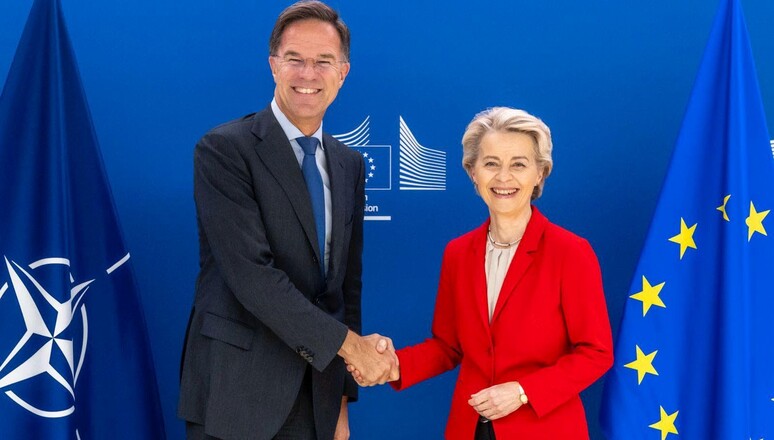
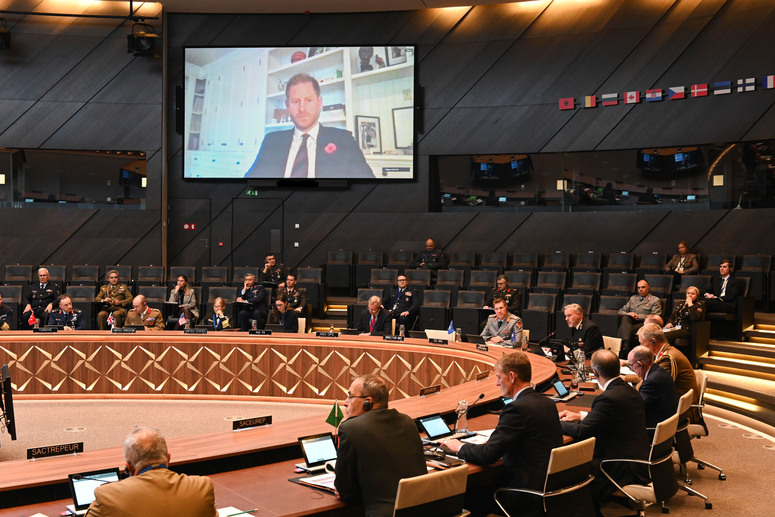
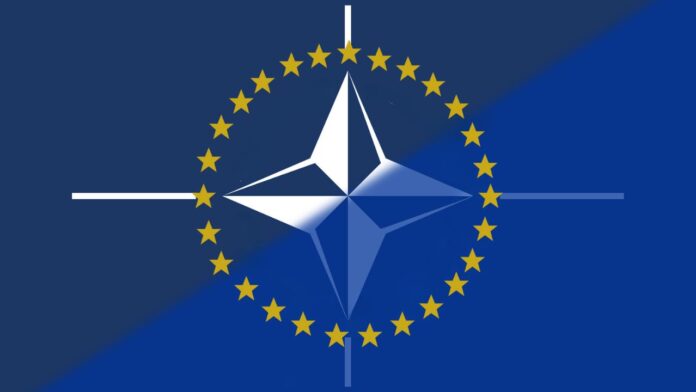
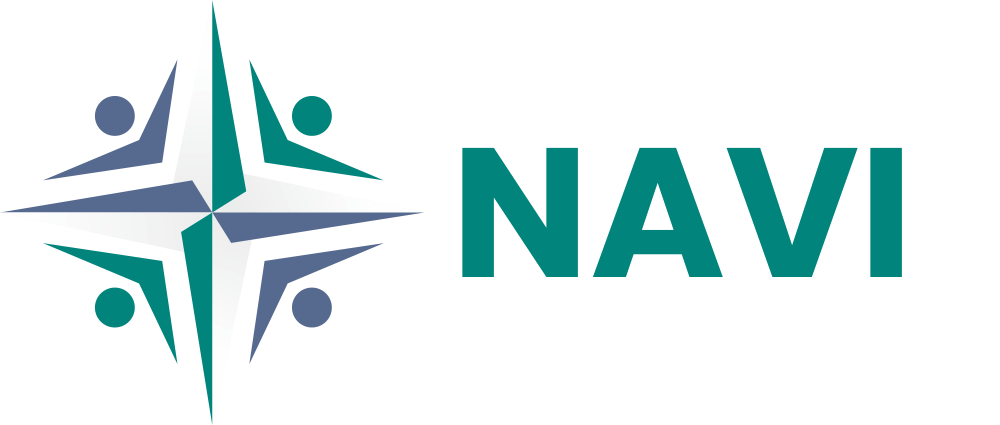
![NAVI-PROJE-[Recovered] Radar Weekly](https://nato-veterans.org/wp-content/uploads/2024/05/NAVI-PROJE-Recovered-696x392.gif)
